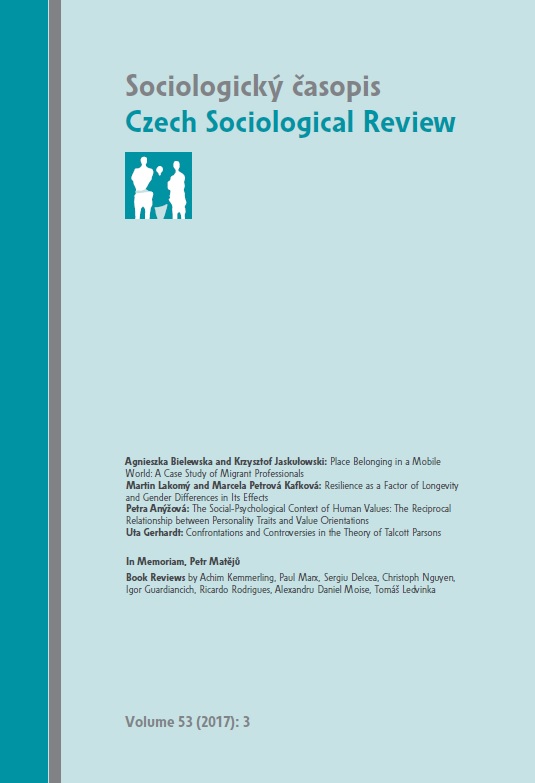Resilience as a Factor of Longevity and Gender Differences in Its Effects
Resilience as a Factor of Longevity and Gender Differences in Its Effects
Author(s): Martin Lakomý, Marcela Petrová KafkováSubject(s): Gender Studies, Demography and human biology
Published by: AV ČR - Akademie věd České republiky - Sociologický ústav
Keywords: resilience; older age; longevity; gender; SHARE
Summary/Abstract: Various explanations for longevity and mortality differences have been repeatedly tested and discussed in the context of worldwide population ageing. This study contributes to this field of research by testing the potential of resilience as a capacity to adapt in the face of adversity through individual and social resources and is the first European study to investigate how resilience predicts survival in later life. Panel data from the Survey of Health, Ageing and Retirement in Europe are used to determine the predictors of survival among people over the age of 75 between waves 1, 2, 4, and 5. The results of a multilevel logistic regression show that resilience is a strong predictor of survival among the oldest old and that this is true even when controlling for the amount and severity of adversity. Resilience is found on its own to be a stronger predictor of survival in women, while the amount and severity of adversity is more important in men. Resilience is therefore found to be an important factor in longevity and survival in later life and the stronger effect of resilience in women can partly explain the ‘gender paradox’. To sum up, resilience is observed to be protective against decease, especially through the use of social resources, which are stronger among women and which are not measured in most traditionally used resilience scales.
Journal: Sociologický časopis / Czech Sociological Review
- Issue Year: 53/2017
- Issue No: 03
- Page Range: 369-392
- Page Count: 24
- Language: English

